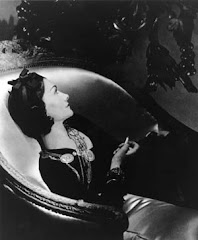 In the Saturday Times.
In the Saturday Times.
LINDA GRANT IS a writer of perceptive journalism about the emotional resonance of clothes, and now explores the theme in greater depth in her latest novel, The Clothes on their Backs. Her heroine, Vivien Kovaks, slightly resembles a rawer, angrier version of one of Anita Brookner's dutiful daughters, waiting in a tightly suppressed agony of longing for life to happen.
She is the child of elderly Hungarian refugee parents. Her father “suffered from an anxiety: that any small disturbance in his circumstances would bring everything down - the flat, the wife, the job, the new daughter, London itself, then England, and he would slide down the map of the world, back to Hungary”.
As a bulwark against such catastrophe, the Kovaks cling to the solid, red-brick respectability of their rented mansion flat in Benson Court, off Marylebone Road in London.
As a child, Vivien discovers occasional chinks in this stifling atmosphere of anxious conformity - in 1963, when she is 10, she witnesses a violent doorstep altercation between her father and a man claiming to be her uncle; a man in an electric-blue mohair suit, with a diamond watch on his wrist and a black girl on his arm. Later, there is a brief, delicious encounter with an elderly neighbour, a fragile old woman whose legacy to Vivien is a trunk full of improbably glamorous clothes - “silks, satins, velvets... a momentary rain of richness” - which will provide her passport to the world beyond Benson Court.
. . .
The Clothes on their Backs is a novel fascinated with how outward appearance at once conceals, expresses and forms the inner person.
Such is the richness of Grant's plotting that the story encapsulates many untold narratives - of Vivien's second marriage, for example, and her life with her two “fat, fair English” daughters - while the significance of other narrative threads can sometimes seem strangely opaque. But that is really the central theme of the novel - that life itself is opaque. You try to analyse it as best you can, but sometimes it is impossible to see past the surface of things.
from the Times, read on

